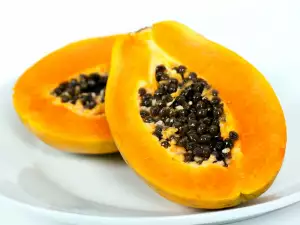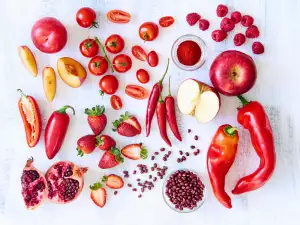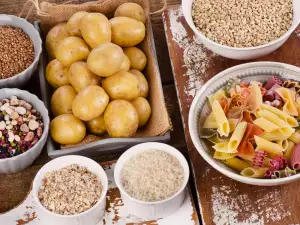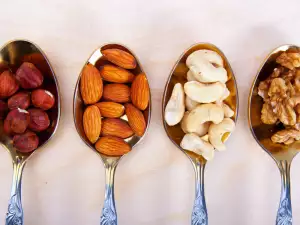Types of enzymes in food
Digestive enzymes - plant foods contain many enzymes that are necessary for people to carry out metabolic exchange. Proteases and peptidases, which help the processing of proteins; lipases, which help the processing of fats and cellulases and saccharidases, which help the processing of starches and sugars, are all examples of the kind of digestive enzymes, which are generally released in the digestive tract or nearby organs, such as the pancreas and liver. However, these same digestive enzymes can be found in plant foods we consume.
Antioxidant enzymes - like humans, plants need to be protected from any damage and oxygen dependent enzymes enable them to do so. Glutathione peroxidase is an example of important oxidative enzymes that are found in humans and in the plants we eat.
Digestive enzymes play a major role in the breakdown of proteins, fats and carbohydrates, as they catabolize macro-nutrients into smaller molecules that can be absorbed by the intestine. Our optimal physiological functioning depends on proper digestion and absorption of these nutrients.
Some enzymes, such as bromelain, which is found in pineapples, have anti-inflammatory properties.
Enzymes also support the immune system in several ways, as it can process substrates, some of their targets include other molecules, not only macro-nutrients. Proteases can destroy proteins that are located in undesirable bacteria and reduce the risk of infection. In addition, the enzyme bromelain has been found to increase the production of a variety of immune system molecules warning.
Cooking food in almost all standard cooking temperatures changes the properties of enzymes and violates their functioning. The majority of the processing techniques used by manufacturers of foods destroy the natural enzymes in food. The effects of storage on the integrity of the enzymes varies considerably depending on temperature and duration. As higher temperature and duration are factored in, the greater is the likelihood that the enzymes will lose their properties.

Factors that influence the functioning of enzymes are related to the fact that different enzymes have an optimum pH range, in which the reaction they catalyze will happen quickly.
Temperature can affect the level of enzyme activity. Increased temperature increases the rate of enzyme that will catalyze the reaction, but only up to a certain point, as many high temperature processes will cause a change in the properties of the enzyme. Some heavy metals, such as barium, lead and mercury inhibit the ability of enzymes to break down the reactions in which they participate.
The enzyme bromelain contained in pineapple, helps increase the absorption of certain antibiotics, namely amoxicillin and tetracycline. Since bromelain and papain (an enzyme contained in papaya) act as blood thinners, it is suggested that they may increase the effect of warfarin, aspirin and other anticoagulant drugs.
A high intake of dietary enzymes may play an important role in the prevention and/or treatment of the following diseases: pancreatic insufficiency, steatorrhea, lactose intolerance, thrombotic disease, acute sinusitis, post operative recovery, sports injuries and adverse reactions to food.
Food enzymes are available as supplements, as separate constituents, or in combination products that combine more than one enzyme. Some enzyme supplements are derived from animal sources, while others are from non-animal sources. Popular and effective non-animal source of enzymes are fungal species. Bromelain and papain, in turn, are two examples of enzymes that are derived from the pineapple and papaya plants.
Virtually all fresh, organically grown, raw plant foods are sources of enzymes.















Comments